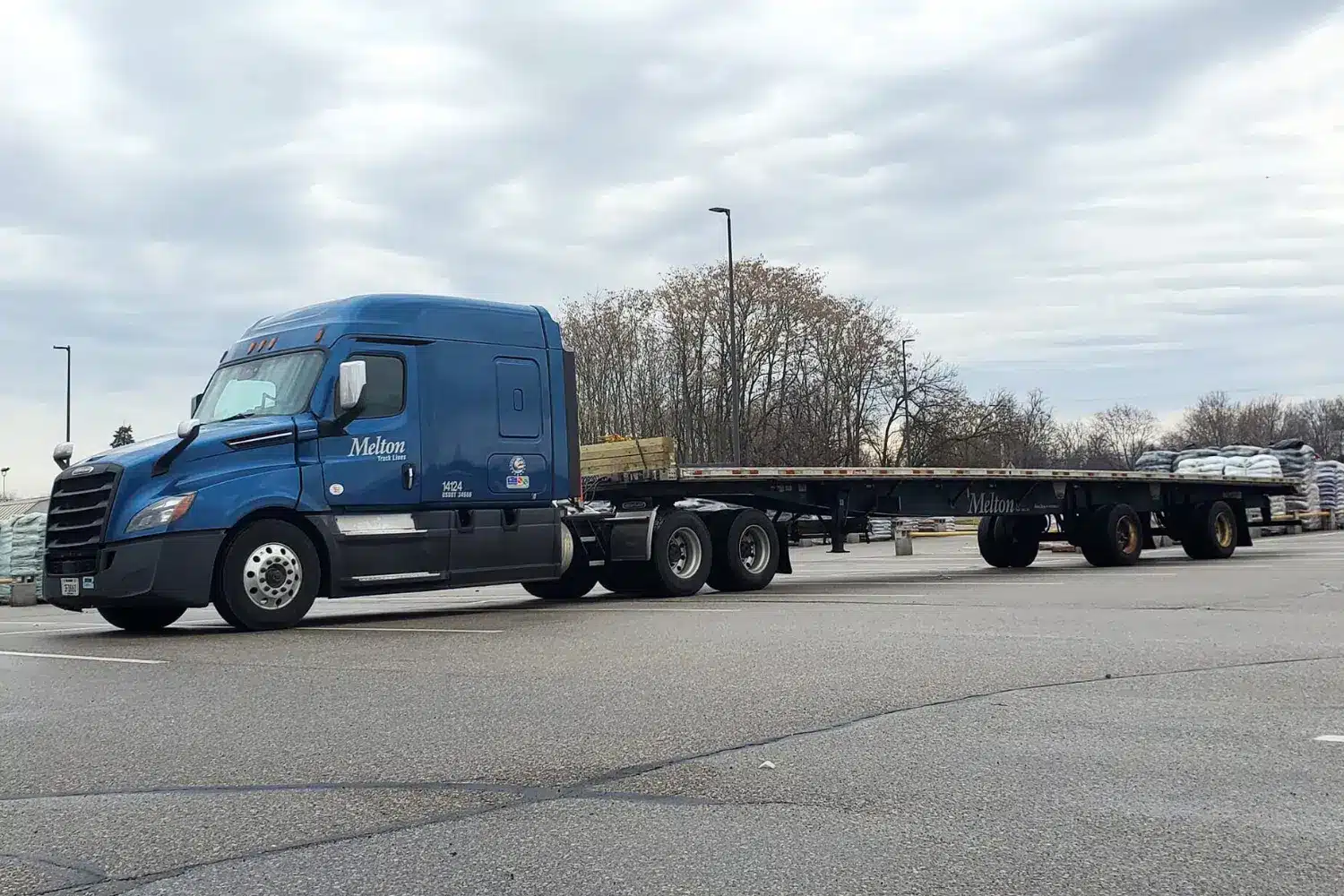
Choosing the Best Freight Trailer – Flatbed, Step Deck, RGN and More
Flatbeds and other open-deck trailers play a crucial role in transporting freight due to their versatility, adaptability, and strength. Depending on the freight you’re looking to ship, choosing the right trailer for that load will make all the difference. Here is a quick guide to determine when you’ll need an open-deck trailer, and what kind of trailer will be the solution for you.
When Do I Need an Open-Deck Freight Trailer?
Open deck trailers are a type of trailer with no walls or roof. Flatbeds, step decks, RGNs, and other open deck trailers allow for easy loading and unloading and enable freight to be shipped even if it doesn’t fit in the standard dimensions or weight limits of a dry van trailer. If your load is oversized, overweight, or does not need the protection of an enclosed trailer, a flatbed trailer may be the best option to ship on.
What Truck Trailer Type Do You Need?
When you picture an open deck trailer, your mind might jump to a flat-top trailer with a load bound to it by multiple straps and chains. While this is one kind of open deck trailer, there are several other standard trailer types you might encounter. The most common are the following:
Flatbed Trailers
A standard flatbed trailer is 48-53’ long, 8.5’ wide, and 5’ tall. The maximum weight that can be hauled ranges from 48,000 to 52,000 lbs, and freight can measure up to 8’6” in height before requiring extra permits.
Common loads you’ll see on a flatbed range from raw materials, construction supplies and equipment, lumber, formed concrete, and construction vehicles.

Step Deck Trailers
A step deck trailer, also known as a drop-deck trailer, is designed to carry tall loads that may exceed the legal height limit of a traditional flatbed trailer.
These come in between 48’-53’ long, and can carry loads up to 48,000 pounds on both decks combined. The front deck can carry loads up to 8’6” tall, while their main deck can go up to 10’. When comparing step deck vs flatbed, the main distinctive feature of step decks is that its lower deck is 3’6” tall instead of the standard 5’, allowing for taller freight without requiring additional permits versus a flatbed trailer.
Typical loads you might see on a step-deck trailer include tractors, excavators, agricultural materials, and other heavy machinery.

Removable Gooseneck Trailer (RGN)
Removeable Gooseneck Trailers, also known as RGN trailers, provide ease of use for hauling large equipment. Unlike a step deck or flatbed, an RGN trailer has a low-riding deck that detaches at the front and forms a ramp – this allows for vehicles to drive straight onto the trailer, making it ideal for cargo like bulldozers, cranes, and other heavy machinery.
These trailers can vary in length from 24 to 40’ long, with a height limit of 11 feet. Without any modifications, these trailers can haul up to 40,000 lbs.
There is also the option to utilize an Extendable Removable Gooseneck Trailer, in which additional axles are added to accommodate extra-long or heavy freight — it can measure up to 50’ in length and can carry up to 225,000 pounds (19 total axles).

Double Drop Trailer (Lowboy)
Also known as a lowboy, the double drop trailer is much lower to the ground compared to most other trailers. These trailers are good to choose when you’ve got freight that may not be heavy but does exceed the standard height clearance of a standard flatbed.
On average they are around 29 feet long with a height clearance of 11-12’, and they’re able to carry about 38,000 pounds.
Typical loads for a double drop trailer range from industrial and farm equipment to other single-piece freight shipments.

Choosing the right trailer will ensure your freight arrives safely. Always ensure you’re checking for any required permits that your load might need, especially if it is traveling across multiple states. Melton offers both flatbed and step deck services – if you’re looking to haul your freight with our open-deck trailers, view our services page here!
